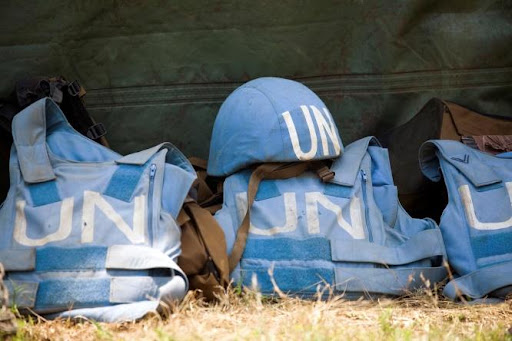By Ardya Syafhana / GICJ
On 5 April 2022, United Nations Secretary-General, Mr Antonio Guteres through his Deputy spokesperson issued a statement concerning an attack against peacekeeping forces in Ituri Province, Democratic Republic of Congo (DR Congo) [1]. This attack was allegedly carried out by a militia, namely Cooperative pour le developpement du Congo (CODECO), which claimed the life of a peacekeeper of the United Naun  tions Organization Stabilization Mission in the Democratic Republic of Congo (MONUSCO) from Nepal [2]. This is not the first time UN peacekeepers have fallen in Congo as there had been another attack killing eight peacekeepers the previous week in North Kivu Province [3].
tions Organization Stabilization Mission in the Democratic Republic of Congo (MONUSCO) from Nepal [2]. This is not the first time UN peacekeepers have fallen in Congo as there had been another attack killing eight peacekeepers the previous week in North Kivu Province [3].
In May 2021, the Democratic Republic of Congo imposed martial law in North Kivu and Ituri to suppress insecurity in the eastern part of the country (Ituri and North Kivu) [4]. The country has been subject to numerous conflicts, including the Invasion of Belgium in 1960, the 1994 Crisis in Rwanda, and now the civil war between the Congolese government and armed groups (e.g. CODECO and M23). MONUSCO was firstly established under the name of the United Nations Organisation Mission in The Democratic Republic of Congo (MONUC) by the United Nations Security Council (UNSC) Resolution 1279 in July 1999 following the Lusaka Agreement. Initially, the organisation was designed to oversee the implementation of the Lusaka Agreement, but its mandate was later extended to involve the protection of civilians, humanitarian personnel and human rights defenders from the ongoing conflict [5]. MONUSCO was even equipped by the “Intervention Brigade”, or a group of military forces from Tanzania, Malawi and South Africa authorised to undertake offensive operations to neutralise and disarm groups threatening the state and civilians [6]. Aside from the incident involving peacekeeping members, hundreds of civilians died and were injured during this conflict, and around 5 million people were internally displaced across the country [7].
International Humanitarian Law (IHL) protects not only civilians and people hors de combat in armed conflict but also personnel involved in peacekeeping missions. This rule is recognised both in international law treaties such as Rome Statute and the Convention on the Safety of UN Personnel as well as customary international humanitarian law [8]. Violations of this rule entail an obligation of the state parties to investigate and prosecute the offenders [9]. On a positive note, DR Congo had convicted military members who were found responsible for the murder of United Nations Experts in 2017 [10]. In the context of International Justice, a trial was set up in the International Criminal Court for the crimes involving an attack on peacekeepers in Sudan [11].
Geneva International Centre for Justice (GICJ) is concerned about the aforementioned incident We strongly condemn violations of IHL by targeting an attack against personnel engaged in peacekeeping missions, let alone civilians in Congo. Learning from the past actions, GICJ calls upon DR Congo to further a careful and immediate criminal investigation of the crimes concerned and, finally, all conflicting parties to comply with prevailing law under IHL.
DR Congo, Peacekeeping Members, International Humanitarian Law, Nepal, MONUSCO, Attack, Justice, Human Rights, Geneva, geneva4justice, GICJ, GenevaInternationalCentreForJustice
Image source: Flickr (https://www.flickr.com/photos/un_photo/3331239203/)









